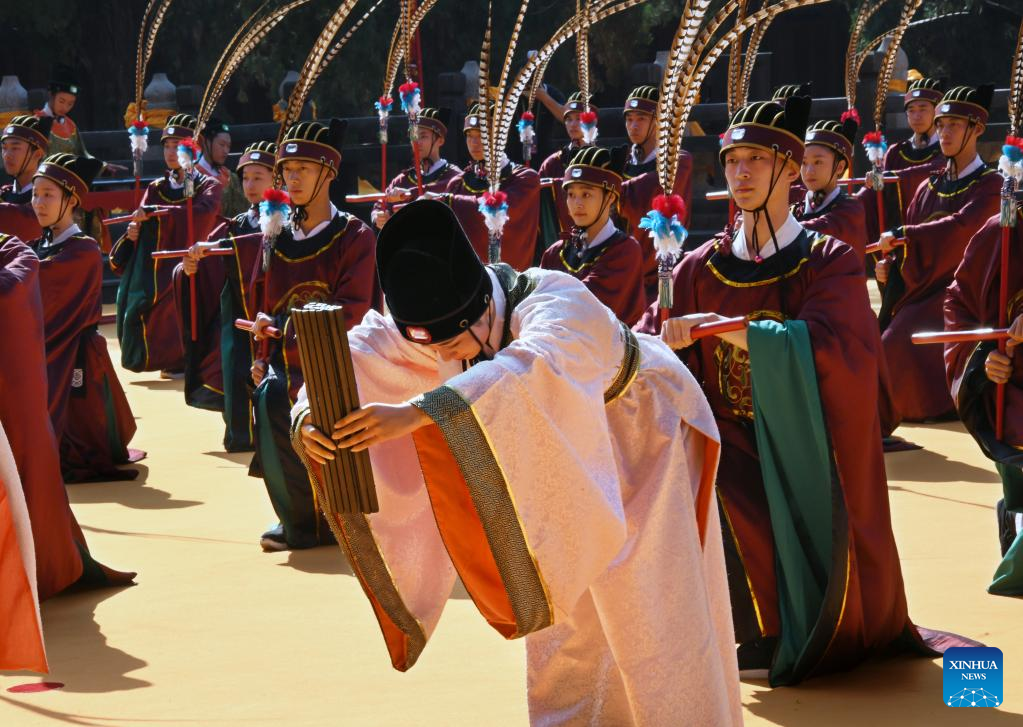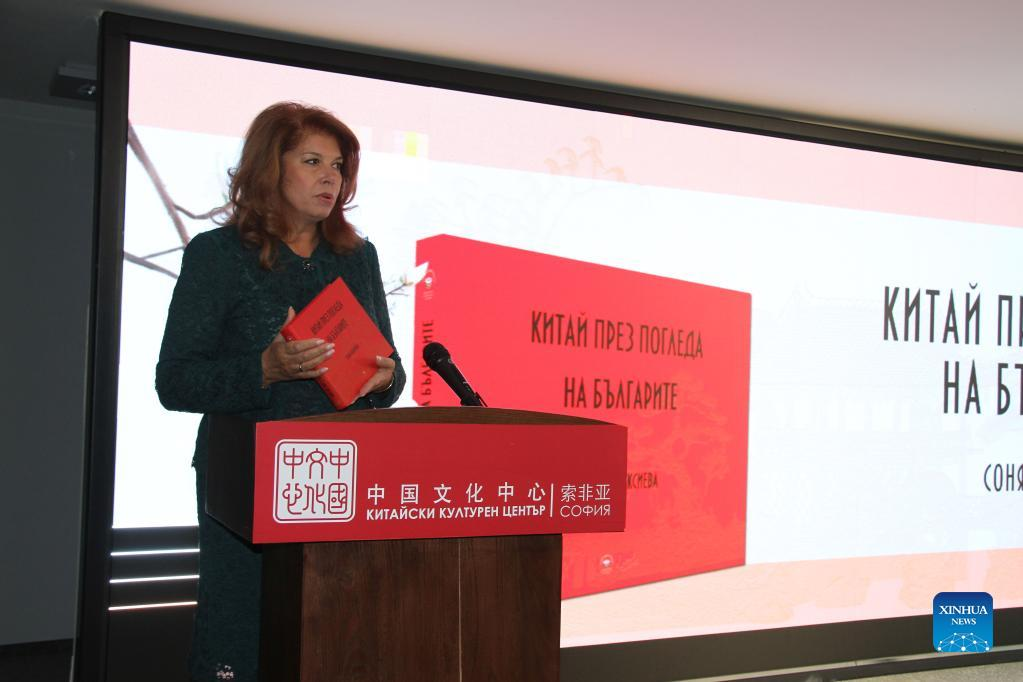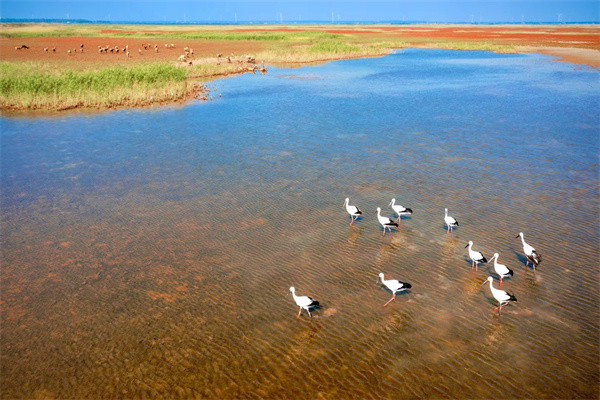
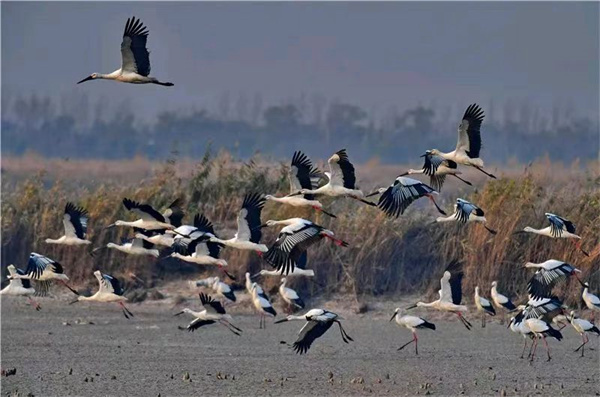
(Photo provided to Xinhua Daily)
At the 2023 World Coastal Forum (WCF) held in Yancheng City on September 25, Ma Lianyi shared his journey of establishing the Yeludang China Conservation Area for Dark and Starry Sky in the city’s Dafeng District, also recognized on the World List of Dark Sky Places by the IUCN.
The 71-year-old founder of the conservation area previously worked for over a decade in Northwest China's Hoh Xil National Nature Reserve, where he often crossed the Tuotuo River, the source of Yangtze River, on horseback.
After returning to his hometown of Dafeng, Ma, together with five other people from Guangdong, Fujian, Tianjin and Shanghai, all in their later years, aspired to promote ecological restoration of the Yeludang area, which spans 200 hectares.
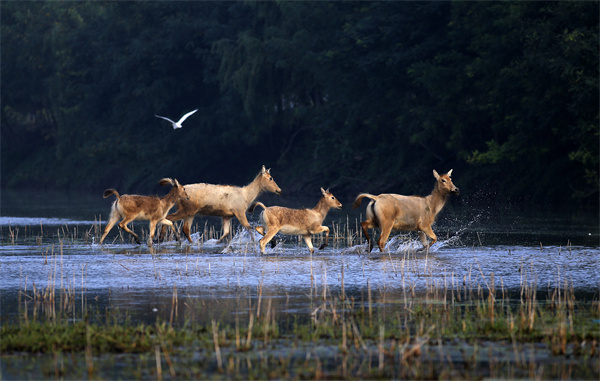
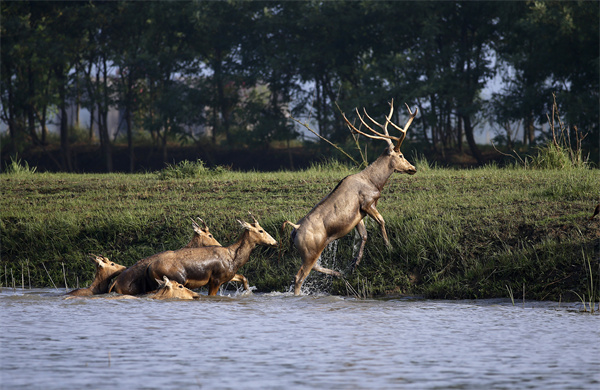
(CFP Photo)
Over the past 15 years, the team has successfully promoted the harmonious coexistence of humans and nature along the western coast of the southern Yellow Sea.
"10,000 years ago, Yeludang was the northern estuary of the ancient Yangtze River. From Tuotuo River to Yeludang, I feel it’s my mission to develop this place into a national geographic landmark," said Ma.
Their efforts included building roads and planting trees on the barren land, dredging streams, creating an 80-hectare of shallow water bay, and introducing fish and crabs into the area.
Today, Yeludang serves as a habitat for migratory birds like red-crowned cranes, black-faced spoonbills, and Tringa guttifers. It has also become a sanctuary for herds of milu deer. Recently, more than 200 oriental storks have been spotted in the bay every day. The area has also attracted nearly 100,000 people for stargazing and birdwatching.
Among the six pioneers, Tao Heming, a former teacher at Xiamen University, passed away in 2018 after four years of hard work at Yeludang. Even on his deathbed, he had over 4,000 logs installed at the shallow bay to serve as roosts for large birds.
"He refused to set up stone monument in honor of his contribution, saying when people see flocks of birds returning and standing on the wooden stakes, that's when he would come back,” Ma recalled.
Another contributor, Ni Guangbao from Fujian, was a collector of cultural relics. Despite serious illness in 2016, he donated funds and personally engaged in many works, devoting the last three years of his life at Yeludang, according to Ma.
Ma has given more than 400 outdoor lectures to more than 30,000 visitors. "We distribute seeds to young people leaving for university or studying abroad, in hopes they can remember the importance of ecological protection,” said Ma.




